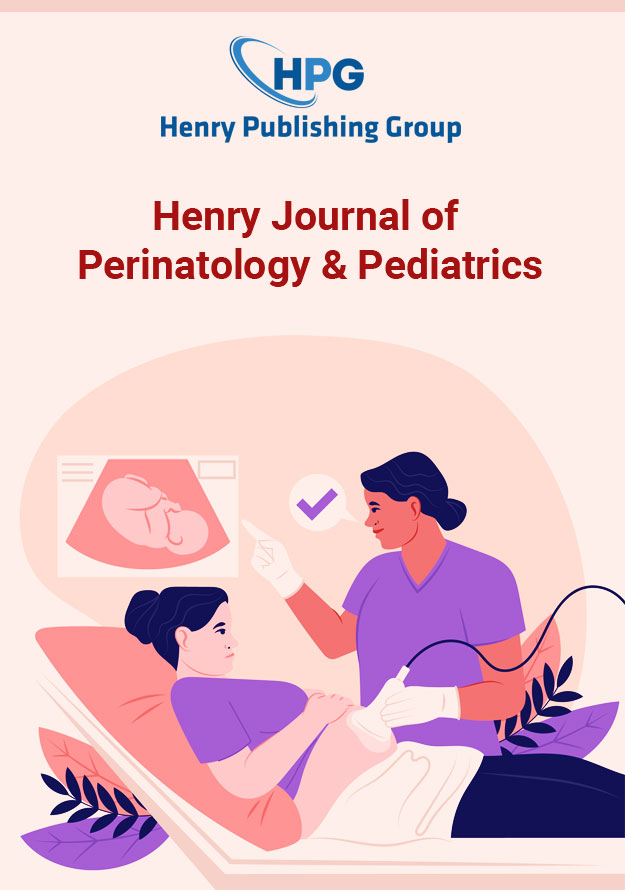*Corresponding Author:
Michael Yafi,
Department of Pediatric En- docrinology, UT Health, The University of Texas at Houston Health Science Center, 6431 Fannin 3.122, Houston, TX, 77030, USA
Tel: +1 7135005649
Email: Michael.Yafi@uth.tmc.edu
Keywords
RTH: Resistance to the Thyroid Hormone; TH: Thyroid Hormone
Case
A 4-year-old male presented to the pediatric endocrinology clinic for evaluation of an abnormal thyroid function test that showed elevated TSH and T4. The child was born asymptomatic and at full term with a birth weight of 3.5 kg. His past medical history was significant for Attention Deficit Hyperactivity Disorder (ADHD) that the patient started being evaluated by a neurologist. The review of body systems was positive for hyperactivity; otherwise, the child was clinically euthyroid.
The family history was significant for hyperthyroidism in maternal grandmother and an unexplained case of thyroidectomy in maternal uncle. The patient was not taking any medication and had no allergies. On physical examination, vital signs were normal; the weight was at 30th percentile while the height was at 40th percentile. There was no thyromegaly. Tanner Staging was I.
Laboratory work up showed:
TSH 16.5 UIU/ml (normal range 0.5-4.5)
T4 17.2 ugl/dl (normal range 4.5-12) Free T4 2.2 ng/dl (normal range 0.8-1.6)
All levels of Antithyroid Peroxidase antibodies (Anti TPO), Thyroid Stimulating Immunoglobin (TSI) and Antithyroid Globulin (anti TG) were within normal range.
Based on symptomatology and thyroid function test, the diagnosis of thyroid resistance was suspected. An MRI of the pituitary gland showed no pituitary adenoma. Genetic testing showed a mutation in the cell-membrane transporter of thyroid hormone TH, MCT8 confirming the diagnosis. The mother was educated about this diagnosis; she revealed that many family members have had brain MRIs for the same suspicion.
Discussion
Resistance to the Thyroid Hormone (RTH) is a very rare disorder. This can be at the level of peripheral tissues, pituitary or both (global resistance) [1]. The symptoms of RTH may include same feature of hypo and hyperthryoidism based on tissues affected [2]. Delayed bone maturation, learning disabilities and even mental retardation can be included features [1]. Attention deficit-hyperactivity disorder has been reported often with RTH [3]. The diagnosis of RTH is complicated and often misinterpreted as hyperthyroidism or pituitary adenoma, resulting in unnecessary therapy [4]. Specific molecular genetic testing may be needed to confirm the diagnosis and understand the specific tissue related level of resistance [5]. There are many reported genetic defects that can cause resistance to TH including mutations which involve the cell-membrane transporter of TH receptor β gene MCT8,other mutations in the SECISBP2 gene, which is required for the synthesis of selenoproteins, including TH deiodinasesmay affect the intracellular metabolism of TH too [6]. Therapy is nonspecific, many therapeutic approach aim to control the symptoms of hyperthyroidism especially to control heart rate but generally speaking, there is no successful treatment for RTH itself [7].
References
- Refetoff S (1982) Syndromes of thyroid hormone resistance. American Jour- nal of Physiology-Endocrinology and Metabolism 243: 88-98.
- Beck-Peccoz P, Chatterjee VK (1994) The variable clinical phenotype in thy- roid hormone resistance syndrome. Thyroid 4: 225-232.
- Hauser P, Zametkin AJ, Martinez P, Vitiello B, Matochik JA, et al. (1993) At- tention deficit-hyperactivity disorder in people with generalized resistance to thyroid hormone. N Engl J Med 328: 997-1001.
- Philip R, Padikal MK, Alinausad A, Keshavan C (2016) Not all elevated hor- mones are toxic: A case of thyroid hormone resistance. J Family Med Prim Care 5: 460-462.
- Refetoff S, Weiss RE, Usala SJ (1993) The syndromes of resistance to thyroid Endocr Rev 14: 348-399.
- Refetoff S, Dumitrescu AM (2007) Syndromes of reduced sensitivity to thyroid hormone: genetic defects in hormone receptors, cell transporters and deiodin- Best Pract Res Clin Endocrinol Metab 21: 277-305.
- Weiss RE, Refetoff S (1999) Treatment of resistance to thyroid hormone--pri- mum non nocere. J Clin Endocrinol Metab 84: 401-404.
Citation:Yafi M (2017) A Case of Thyroid Resistance. J Perina Ped 1: 001.
Copyright: © 2017 Yafi M. This is an open-access article distributed under the terms of the Creative Commons Attribution License, which permits unrestricted use, distribution, and reproduction in any medium, provided the original author and source are credited.


